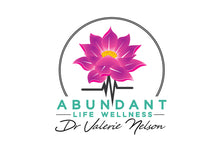Why Sugar Isn't Sugar Anymore
Americans are taking in more dietary sugar in recent years, thanks to the prevalence of corn-based sweeteners like high fructose corn syrup in nearlyeverything on grocery store shelves.
Corn syrup has become the go-to sweetening agent for processed foods due to its low cost and high concentration (at least 1.5 times that of cane sugar). Plus, government subsidies have made corn super inexpensive for food and beverage companies that need a steady supply of cheaper ways to sweeten foods.
What is most concerning though is that corn is also the top GMO crop with at least 92% of the nation's corn supply being genetically modified to withstand large doses of herbicides. Setting aside the shocking effects of GMO consumption, this sweetener is wreaking havoc on the health of Americans. Studies abound correlating intake of high-fructose sweeteners to increased risks of obesity, cardiovascular disease, hypertension, fatty liver disease, and diabetes. Did we mention that cancer cells simply love and grow when fed the wrong kinds of sugars?
What About Zero-Calorie Sweeteners?
Aspartame, Equal, sucralose, splenda, saccharin: Linked to increased risk of kidney disease, metabolic dysfunction, diabetes, and obesity, these calorie-free sugar substitutes trick consumers into thinking that previously unhealthy foods can get "a sugar-free pass." But fake sugars are far from harmless. Studies show consuming synthetic sweeteners generates excessive cravings for sweet taste, leading to weight gain and other negative effects linked to excessive sugar consumption.
Nature Has the Solutions
Wondering what options this leaves you your sweet tooth gets the best of you. Fortunately, nature has some pretty good options. Here are four solutions for satisfying your sweet tooth that won't rot your teeth, create blood sugar imbalance, or cause weight gain. In fact, these natural wonders pack some amazing health benefits!
Xylitol
Xylitol is a sugar alcohol derived from xylose - a crystalline sugar found in birch bark. Sweet like sugar but with only 40% of the calories, xylitol is fast becoming the preferred sweetener of individuals seeking a healthy alternative.
Low-carb dieters will find xylitol appealing, with less than a quarter of the carbohydrates found in cane sugar. It also stands apart from synthetic sweeteners thanks to the fact that it comes from nature. Besides birch trees, xylitol is found in the cellular structure of fruits like raspberries.
And there's good news for sufferers of cavities or Candida: Xylitol actually discourages the bacterial growth that feeds these conditions. The bacteria that cause candida, dental caries, and even Streptococcus mutans, thrive in acid-based environments, with sugar as their food of choice. Xylitol is non-fermentable, creating an alkaline reaction in the body that bacteria simply do not like. Xylitol consumption has been shown to dramatically decrease cavities and ear and throat infections, among other infectious organisms. There are some gum and toothpaste choices out there that contain xylitol.
The dental health community are one of the biggest supporters of Xylitol. Studies have shown that plaque build-up and dental caries can be reduced by 80% with the introduction of moderate amounts of xylitol (up to half an ounce per day).
Stevia
300 times sweeter than sugar and without caloric content, the Stevia plant has been used by native people to sweeten food and drink for centuries. Stevia's popularity as a modern sugar substitute grew in the 1990's, and new research confirms: this plant is a safe alternative to bad sweeteners.
The study published in August 2017, calls Stevia "a suitable calorie-free sweetener," with both "pharmacological and therapeutic properties, including antioxidant, antimicrobial, antihypertensive, antidiabetic, and anticancer." Stevia reduces blood sugar, reduces blood pressure, combats infections, and reduces risks of diabetes. One study even found that consuming stevia was as effective as a popular oral antidiabetic drug, but with fewer side effects. If you use powder stevia, be sure to read the ingredients listing and pick up one that only has stevia listed on the label without other fillers.
Raw Honey
Identified as containing more than 181 health-promoting substances, honey converts the vital, healing energy of plants into a medium that is perfect for consumption. Rich in phytonutrients (nutrients absorbed from plants), raw honey is renowned worldwide for having powerful anti-oxidative and anti-inflammatory properties
Raw, unfiltered honey is very different from the pasteurized product you find on most grocery store shelves. Nearly all commercially-produced honey is heated to kill potentially harmful bacteria, reduce crystallization, and improve product flow. Unfortunately, this process also kills the vital, living enzymes and good bacteria which make raw honey one of the world's oldest-known superfoods.
The bacteria in raw honey serves as a prebiotic: a substance containing helpful microorganisms that aid in the process of digestion. When consumed raw, honey's natural enzymes aid in the breakdown and assimilation of the many nutrients it contains. Honey should be used in moderation because it may raise sugar levels and feed candida.
Molasses
Blackstrap molasses, known to sugar-refiners as "final molasses," refers to the thick, brown syrup that is the end result of boiling sugar cane during the production of table sugar. What sets molasses apart from cane sugar, is it's surprisingly high nutritional value. A 3.5 oz serving of blackstrap molasses contains more than a quarter of your daily supply of vital minerals such as iron, magnesium, potassium, manganese, and the B vitamins. Molasses delivers this nutritional punch with much less sugar, thanks to being at the end of the line of the crystalline-sugar extraction process.
These four, healthful alternatives to sugar prove that craving a taste of sweetness doesn't have to cause cavities, promote weight gain, or lead to blood sugar imbalances. On the contrary, when we look to nature, we find natural foods that actually sweeten our health, as well as our palates!

